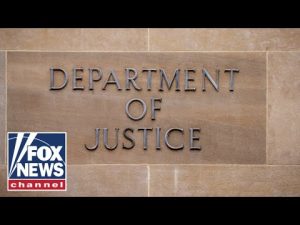The world is experiencing a palpable shift in geopolitical realities, and one name looms large in this transformation: Donald Trump. With the NATO Chief, Mark Rudy, advocating for a necessary transition to a wartime mindset, it is evident that the stakes are higher than ever before. This call to action should not just be heard—it demands serious attention. For those who have been following international relations, the urgency for preparation in defense is clear. In four to five years, the landscape could look drastically different, and we must ask ourselves: Are we ready?
Consider the current situation in Ukraine, where conflict has erupted, reshaping alliances and demonstrating the unpredictability of global politics. This is not merely a distant crisis but a stark reminder that similar threats could emerge closer to home. If we dare to look away, the consequences could be dire. The safety of our nation is intricately tied to a robust and prepared military apparatus. Incremental changes in our defense capabilities can no longer suffice; comprehensive and decisive action is required to deter potential aggressors.
When discussing preparedness, it is vital to consider not just military might but also production capabilities and funding. Revisiting our defense spending is not just about numbers; it is about national survival. Underestimating the importance of fortifying our defenses could leave us vulnerable at a critical juncture. If a wartime mindset is what’s needed, then America must begin to mobilize resources, recalibrate its focus, and reinforce its commitment to national security. As the world evolves, so too must our strategies and investments.
The narrative around Trump’s potential return to office is intriguing. Could this revitalization of national defense be a response to his leadership style? While opinions about Trump can vary wildly, one thing is crystal clear: his administration fostered an environment where defense concerns and military readiness took center stage. As NATO advocates for increased vigilance, could it be that they foresee the potential revival of Trump’s assertive approach as pivotal in navigating future threats? Speculating on this possible alignment suggests that effective leadership may indeed play a critical role in maintaining stability.
Finally, embracing a wartime mindset may allow Americans to channel their energies into a unified goal: safeguarding our way of life. The idea that our safety can be ensured through active preparation rather than complacency should resonate strongly with all. It might even give rise to a renewed sense of patriotism, spurring citizens to participate more actively in discussions about national defense policy. Whether we are armed with tools or ideals, readiness is the name of the game. The world may be reshaping itself, but America has the potential—if not the obligation—to lead the way in ensuring stability for the future. So, buckle up, folks; the trip to a more secure future is only just beginning.







